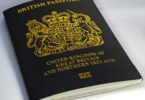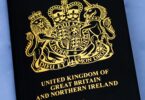How to Immigrate to Canada: The Canada has long been known as the land of opportunity, attracting immigrants from around the globe seeking a better life and professional growth. The Canada job market offers a wide range of opportunities for immigrants, enabling them to pursue their career aspirations and contribute to the country’s economy. This article will explore the various employment prospects available for immigrants in the Canada, as well as provide a step-by-step guide on how to navigate the job application process effectively.
Even during the crisis, Canada continues to bring in new permanent residents who qualified before restrictions were put in place, as well as temporary foreign workers crucial to the country’s food supply.
In an immigration levels plan released just before the pandemic took a grip in Canada, the federal government announced its intention to welcome up to more than 1.1 million new permanent residents between now and 2022. While the coronavirus recovery seems likely to affect these numbers, there will clearly remain many opportunities to immigrate to Canada in the near future.
What Are The Options For Immigrating To Canada?
Broadly, the options are:
- Federal Economic Class.
- Provincial Economic Class.
- Quebec Immigration.
- Business Immigration, including the Start-Up Visa Program.
- Temporary Residence First, Then Transition To Permanent.
- Family Class Sponsorship.
1) Federal Economic Class
Canada accepts the largest number of immigrants under the economic class, with annual levels set to move over 200,000 in the category over the next three years.
The largest group within the economic class is the Federal High Skilled category.
There are many immigration streams to be considered when considering applying for Canadian permanent residence from Nigeria.
What Are Canada’s Federal Economic Class Programs?
- Federal Skilled Worker
- Federal Skilled Trades
- Canada Experience Class
Canada operates its federal economic class immigration system using Express Entry. Many provinces also follow a similar approach.
Express Entry requires candidates to submit a profile, with the highest scoring profiles issued an Invitation to Apply to one of the above immigration programs.
Candidates then get 60 days to submit a full application.
Under Express Entry, candidates score Comprehensive Ranking System points for core factors such as age, education, work experience and language ability.
What Is The Express Entry Process?
- Submit profile and enter Express Entry Pool.
- Get issued an Invitation to Apply if you meet the minimum points requirement.
- Submit an application in 60 days.
- Get a decision in target processing time of six months.
- If successful, move to Canada.
One of the best ways to increase a CRS score is with a job offer, which can be worth 200 or 50 points depending on the skill level. Visit skilledworker.com, the leader in foreign recruitment, to access our job search services.
Several of Canada’s provinces also operate Express Entry streams, allowing them to tap skilled workers from the pool.
A provincial nomination is worth 600 points and effectively guarantees an Invitation to Apply.
If you meet the requirements, Express Entry can be a fast way to achieve Canada immigration, with target processing times of six months once the full application is received.
What Are Canada’s Provincial Programs?
- Ontario Immigration
- Quebec Immigration
- Alberta Immigration
- British Columbia Immigration
- Manitoba Immigration
- New Brunswick Immigration
- Newfoundland Immigration
- Nova Scotia Immigration
- Saskatchewan Immigration
- Prince Edward Island Immigration
If you do not qualify through a federal economic program, the next step is to consider provincial streams for your application for permanent residence from Nigeria.
Each one of Canada’s provinces runs their own immigration programs, targeting the specific demands of local labour markets.
If you have specific skills, there could be a provincial stream waiting to accept you.
Quebec has autonomy over its immigration system, with the right to set its own immigration levels and the power to operate its own programs.
Quebec recently launched an Expression of Interest system similar to Express Entry, where candidates submit profiles to the Arrima system and are issued periodic invitations to apply.
Can I Apply For A Business Immigration Program?
Canada also aims to attract entrepreneurs and investors through its business immigration programs, with many applications accepted from Nigeria.
At the federal level, options include:
- Self Employed Program
- Start-Up Visa Program
- Immigrant Investor Venture Capital (IIVC) Pilot Program
Start-Up Visa Program
Canada’s Start-Up Visa Program offers Canadian permanent residence to qualified immigrant entrepreneurs.
The program targets innovative entrepreneurs and links them with private sector investors in Canada who will help establish their start-up business.
Candidates can initially come to Canada on a work permit supported by their designated Canada-based investor, before qualifying for permanent residence once their business is up and running.
There are three types of private-sector investor:
- Angel investor.
- Venture capital fund.
- Business incubator.
What Are the Start-Up Visa Candidate Eligibility Requirements?
The basic candidate eligibility requirements for the Start-Up Visa are:
- Qualifying business.
- Commitment Certificate and Letter of Support from a designated entity.
- Sufficient unencumbered, available and transferable settlement funds.
- Proficiency in English or French at minimum Canadian Language Benchmark level 5.
What Is A Start-Up Visa Program Designated Entity?
A designated entity is a Canadian private sector angel investor, venture capital fund or business incubator.
The required commitment must meet the following criteria:
- A designated angel investor group must invest at least $75,000 into the qualifying business. Candidates can also qualify with two or more investments from angel investor groups totalling $75,000.
- A designated venture capital fund must confirm that it is investing at least $200,000 into the qualifying business. Candidates can also qualify with two or more commitments from designated venture capital funds totalling $200,000.
- A designated business incubator must accept the applicant into its business incubator program.
What Are the Start-Up Visa Program Business Ownership Requirements?
For the candidate to qualify for permanent residence:
- The intended business must be incorporated and carrying on business in Canada.
- The candidate must own at least 10 percent of the voting rights in the corporation.
- No other person can hold 50 percent or more of the voting rights in the corporation.
NOTE: Up to five candidates may have their permanent residence application supported by the same business investment. However, certain candidates may be designated essential to the business. If any essential candidate withdraws their application, or are refused, all other candidates under the same business investment will see their applications terminated.
Quebec Immigrant Investor Program
One of Canada’s most popular business programs is the Quebec Immigrant Investor Program.
It is the only passive investment program that leads to Canadian permanent residence.
Intake for the Quebec Investor is currently paused until June 30, 2020. It is not known if the coronavirus pandemic will affect the reopening of the program.
Quebec Investor: Primary Requirements
- Legally acquired personal net worth of $2 million;
- Two years of suitable management or business experience within the five years preceding the application;
- Investment of $1.2 million into a passive government guaranteed investment for a period of five years bearing no interest;
- Intend to settle in the province of Quebec.
Quebec also runs Immigrant Entrepreneur and Self-Employed programs.
Several of Canada’s other provinces also operate business programs as a route to permanent residence from Nigeria.
Increasingly, the provinces require time spent in Canada setting up a business as a temporary resident before candidates are nominated for permanent residence.
Owner-Operator Business Immigration
Candidates looking to immigrate to Canada from the UAE should also consider the Buy a Business and Move to Canada Program.
Federal owner-operator rules allow a candidate to buy a business and move to Canada on a temporary work permit, before transitioning to permanent residence further down the line.
Under this policy, a work permit is issued following the sale and transfer of the majority share ownership of an existing profitable Canadian business to the immigration candidate.
Can I Transition From Temporary To Permanent Residence?
Increasingly, immigrants are coming to Canada as temporary residents and transitioning to permanent residents.
Canada continues to accept temporary workers in priority occupations during the coronavirus pandemic.
This is a popular route for candidates who do not immediately qualify for permanent residence when applying from Nigeria.
Time spent in Canada as a temporary resident counts towards a permanent residence application.
Work permits are issued through the Temporary Foreign Worker Program, International Mobility Program and International Experience Canada Program.
Caregivers also have their own streams for work permits (under the TFWP) and transition to permanent residence.
What Is Family Class Immigration?
Candidates in Nigeria with family members who are already permanent residents or citizens can apply through Family Class Sponsorship immigration.
Which Family Members Can Be Sponsored For Canada Immigration From Nigeria?
- Spouse
- Common-Law partner
- Conjugal partner
- Dependent children
- Parents
- Grandparents
- Brothers or sisters, nephews or nieces, granddaughters or grandsons who are orphaned, under 18 years of age and not married or in a common-law relationship
- Another relative of any age or relationship but only under specific conditions
- Accompanying relatives of the above (for example, spouse, partner and dependent children).
What Are The Requirements To Be A Sponsor?
- You must be 18 years of age or older.
- You and the sponsored relative must sign a sponsorship agreement that commits you to provide financial support for your relative, if necessary. This agreement also says the person becoming a permanent resident will make every effort to support her or himself.
- You must provide financial support for a spouse, common-law or conjugal partner for three years from the date they become a permanent resident.
- You must provide financial support for a dependent child for 10 years, or until the child turns 25, whichever comes first.







